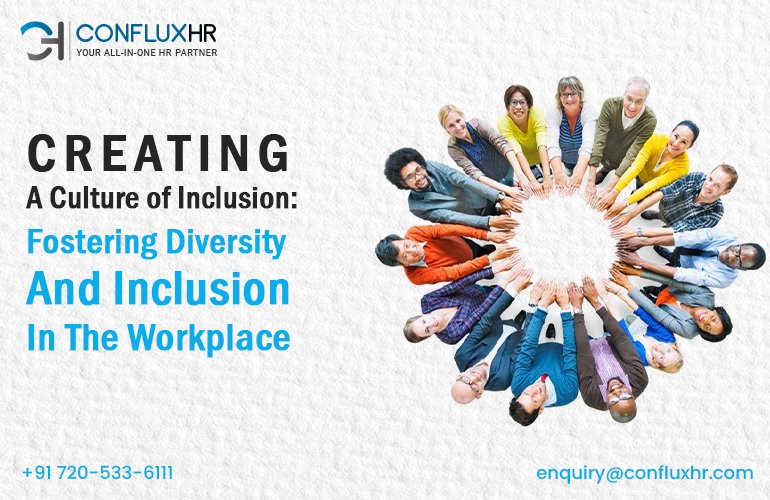In today’s rapidly changing business landscape, organizations recognize the significance of building an inclusive workplace. Diversity and inclusion in HR have become essential for fostering employee engagement, driving innovation, and achieving business success.
This blog will explore the importance of diversity and inclusion in HR and provide actionable strategies for creating an inclusive work environment.
Understanding Diversity and Inclusion in HR
Diversity refers to the variety of unique perspectives, experiences, and backgrounds that employees bring. Conversely, inclusion involves creating an environment where everyone feels valued, respected, and supported. By embracing diversity and fostering inclusion, organizations can reap numerous benefits, including enhanced creativity, improved problem-solving, and better decision-making.
Creating an Inclusive Recruitment Process
Organizations need to implement inclusive recruitment strategies to build a diverse workforce. This involves expanding recruitment channels, crafting unbiased job descriptions, implementing blind resume screening, and leveraging technology to remove barriers. By adopting these practices, organizations can attract diverse candidates and ensure a fair and equitable hiring process.
Developing Inclusive HR Policies and Practices
HR is crucial in creating inclusive policies and practices that support a diverse workforce. This includes unbiased performance evaluations, fair compensation practices, flexible work arrangements, and accommodations for various needs. Furthermore, providing employees with diversity training and education programs can foster awareness, sensitivity, and empathy within the organization.
Promoting Inclusive Leadership
Leadership is pivotal in driving diversity and inclusion initiatives. Leaders should demonstrate their commitment to diversity, hold themselves accountable, and set an example for others. Organizations can create an inclusive work environment from the top down by fostering inclusive leadership skills such as active listening and empathy and promoting a culture of respect and collaboration.
Employee Resource Groups and Allies
Employee Resource Groups (ERGs) provide a platform for underrepresented employees to connect, share experiences, and support one another. These groups contribute to developing an inclusive workplace by promoting diversity awareness and fostering a sense of belonging. Allies actively advocate for diversity and inclusion and play a crucial role in creating a supportive and inclusive environment for all employees.
Ongoing Evaluation and Measurement
Organizations must regularly evaluate and measure their diversity and inclusion efforts to ensure continuous improvement. This involves collecting and analyzing relevant metrics and data to assess initiatives’ impact, identify improvement areas, and track progress toward diversity and inclusion goals. Gathering employee feedback through engagement surveys and feedback mechanisms is vital for understanding their perspectives and needs.
Creating an inclusive workplace is an ethical imperative and a strategic advantage for organizations. By embracing diversity and fostering inclusion in HR, organizations can unlock the full potential of their workforce, drive innovation, and achieve business success. By implementing the strategies discussed in this blog, organizations can take significant steps towards building an inclusive workplace where everyone feels valued, respected, and empowered to contribute their best.


